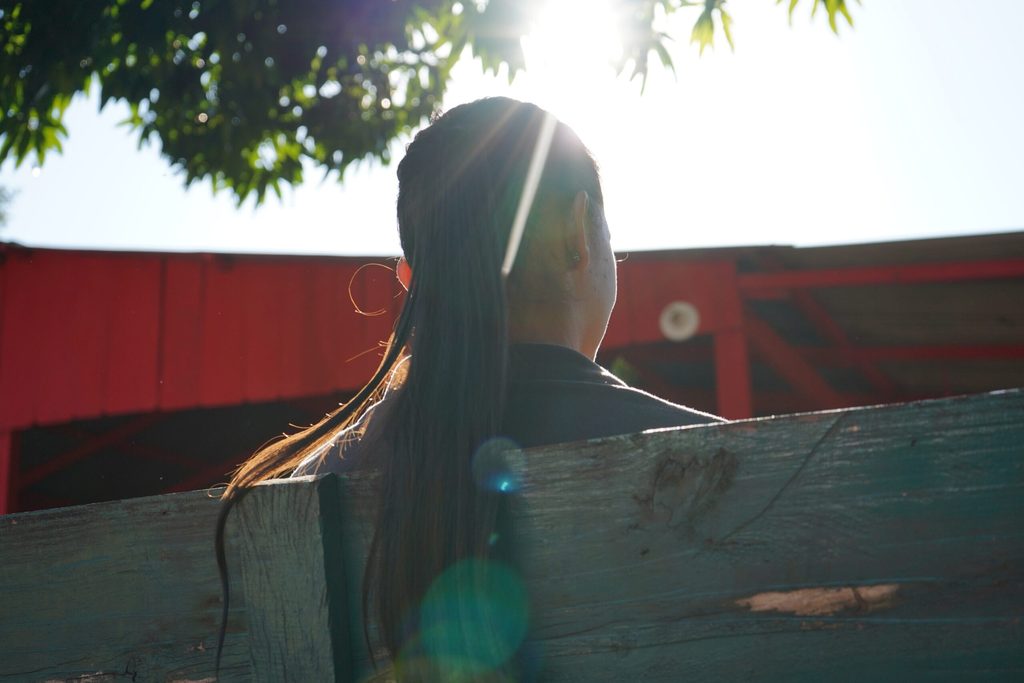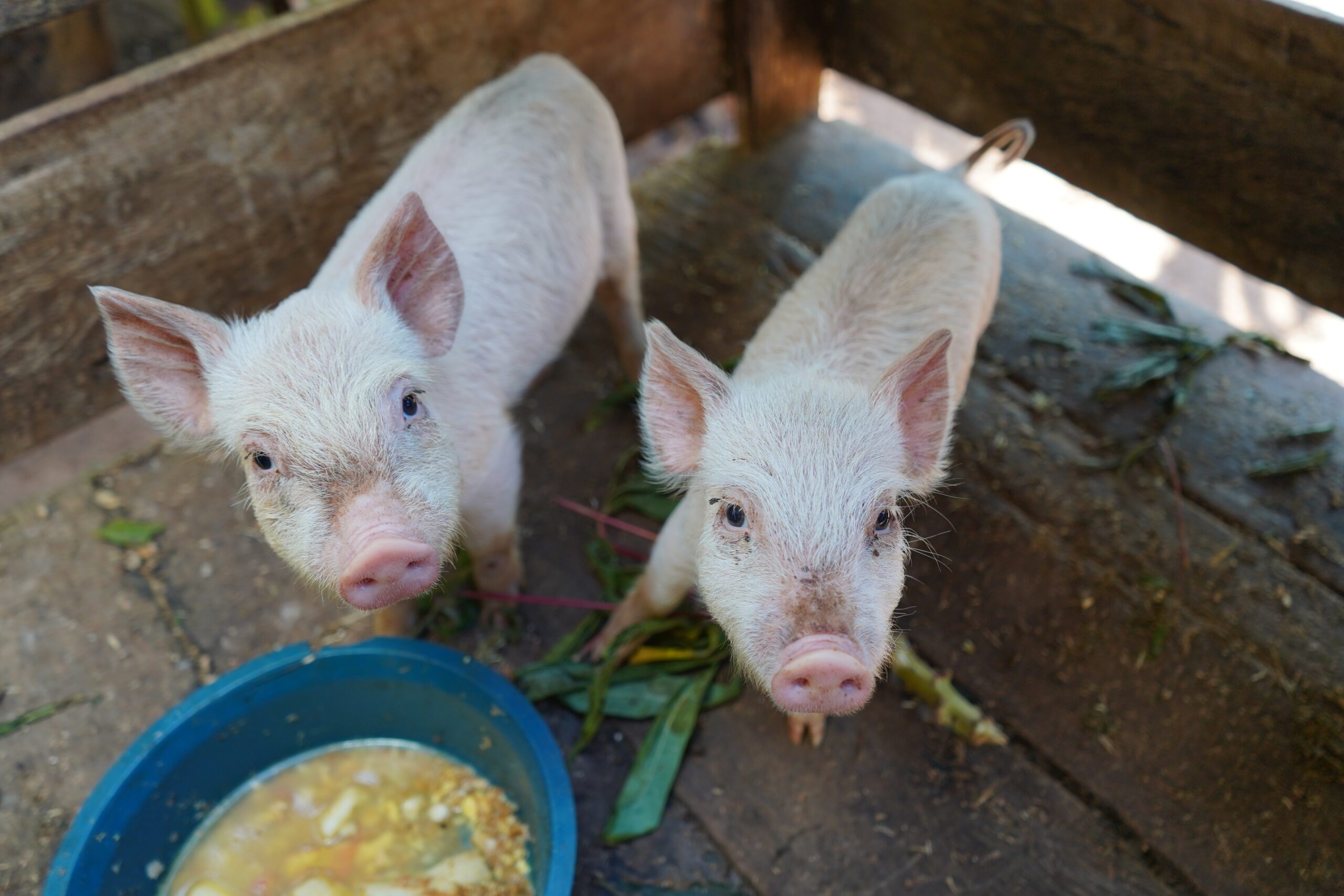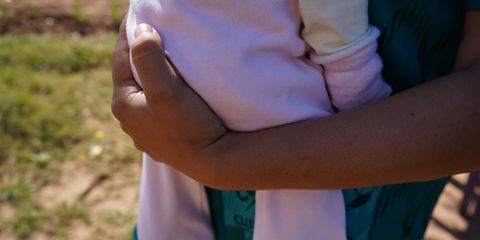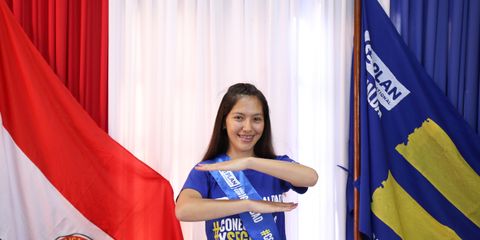Nati, a 27-year-old, recounts how her mother, facing financial hardship, handed her over to an unfamiliar woman to take care of her when she was 7 years old. Nati knows nothing about her siblings, but she knows her mother also placed them with others when they were children.

Forced child servants
“Criadazgo” is a common practice in Paraguay that involves sending children to families of better economic standing (sometimes relatives, sometimes strangers) under the promise of food and education. In most cases, they are used as free labour. According to data from the General Directorate of Statistics and Censuses in 2020, 46,993 girls, boys, and adolescents in Paraguay are under the “criadazgo” system. The Central Department holds the highest percentage (31%) of children aged 5 to 17 engaged in domestic child labor, followed by Alto Paraná with 10.8%.
Nati was once a part of those statistics. At 7 years old, she was responsible for household chores like washing clothes and cleaning shoes for all the household members. She also fed the animals, cleaned their spaces, and performed other domestic tasks. She slept on the floor, in a small corner of the kitchen.
Despite her young age, Nati felt that what was happening was not right. “I was very young and didn’t fully understand what was happening, but I knew it wasn’t right because it felt like too much burden for me.”
“I was very young and didn’t fully understand what was happening, but I knew it wasn’t right because it felt like too much burden for me.”
Nati
The signs of abuse gradually escalated, with excessive and offensive tasks inappropriate for a child her age. “I used to cook for the pigs. And if I didn’t finish cooking for them, I’d stay outside with the animals until everything was cooked and I made sure they had eaten. Sometimes I had to do this in the rain,” Nati recounts.

Nati wanted to play and socialise with other children, but the woman who owned the house denied her that right. The woman was elderly, and her husband and 3 older sons lived in the house. During the years she lived with that family, Nati remembers they all mistreated her; they made inappropriate demands (like massaging in inappropriate places) and threatened her with more severe consequences (like beating her or even killing her) if she didn’t comply.
Due to the conditions she lived in, with animals, a dirt floor, and vegetation, she developed wounds on her head caused by parasites. These wounds were treated with animal-use larvicides and black oil, both harmful to humans.
Her will to succeed
This difficult situation continued for 2 years. At the age of 9, she decided to tell everything to her teachers at school, and they took action. In a school community meeting, the school board raised awareness about an abused girl in the neighborhood. Marta, the school president and a mother of a girl who knew Nati, offered her temporary shelter. She informed the authorities, and they went to Nati’s family’s house to relocate her.
When representatives from the Municipal Council for the Rights of the Child and Adolescent (CODENI) arrived at the house, Nati was washing the homeowner’s shoes. It was cold outside, with a heavy drizzle, she recalls. That’s when everything changed. CODENI’s provisional custody became a permanent one under the care of Mrs. Marta.
“I remember that day, I got into CODENI’s car with a woman who talked to me. I didn’t trust people much, but I didn’t want to keep living in that place, so I agreed to go with them,” Nati says.
Though she was scared at first, she soon felt embraced and treated as a sibling. Her new siblings helped with the chores, and she felt she was in a more comfortable and secure environment. There were no legal actions against her abuser, so the harmful environment Nati endured never faced consequences.
Thanks to her new family’s support, she found the courage to openly talk about her past. “What I went through as a little child is not right, and I don’t want anyone else to go through it,” she says.
“What I went through as a little child is not right, and I don’t want anyone else to go through it.”
Nati
The reality of girls in Paraguay
In the rural areas of the country, girls are particularly vulnerable and affected by gender inequalities. Plan International implements programmes and projects to prevent gender-based violence and eradicate harmful stereotypes that limit girls.
In her new home, Nati became a sponsored child of Plan International, receiving support throughout her development into adulthood. She received training on violence prevention and empowerment skills. Today, she urges other parents in her community to be aware of the need to discuss taboo topics with their children. She has a 7-year-old son and strives to create an environment where vulnerability is minimised.
*The name of the individual in this story has been changed to preserve her identity, and any data that could reveal her exact location has also been omitted or altered.

